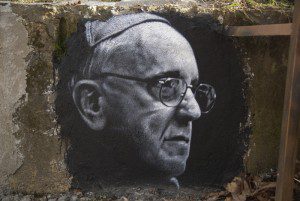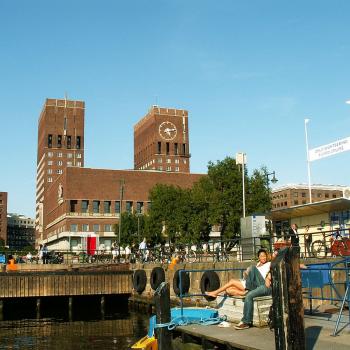
One must be very careful when speaking about Communism, and I don’t mean because it’s a blacklisted word to be avoided at all costs; one must be careful because the popular understanding differs markedly from what the word is actually supposed to mean—its many nuances and historical instantiations.
Take, for example, Pope Francis’ recent comments on Communism:
It has been said many times and my response has always been that, if anything, it is the communists who think like Christians. Christ spoke of a society where the poor, the weak and the marginalized have the right to decide. Not demagogues, not Barabbas, but the people, the poor, whether they have faith in a transcendent God or not. It is they who must help to achieve equality and freedom.
Unsurprisingly many had a bit of a freak out. From Steve Skojec to Rod Dreher, his words raised eyebrows (and probably blood pressure levels). Even some of our own at Patheos Catholic have taken umbrage. On one level, this is understandable. America is a nation saturated in anti-Communism after many, many decades of cold war with the USSR. Millions of American adults were born, raised, and came of age in a world defined by such identification: “are you a Communist or an American?” “Will you stand with us or with the murderous Russians?” In this sense, I sympathize with those whose understanding of Communism is necessarily rooted in that time; it’s a hard mindset to escape.
And yet, something must be said for the complex history of the term and its relationship to Catholicism; it is my hope that clarification will help to demonstrate that while Francis is a bit naïve (for example, I understand, though I’d quibble with, his recent comments on liturgy), he’s neither the antichrist nor a mere “darling of the Left.” In fact, he’s participating in a relatively long history of Catholic critiques of capitalism (I’ve written a bit about that here and here).
First, we must distinguish between “Communism” (capital “C”) and “communism” (lower-case “c”). The former is the final form of human organization according to Karl Marx. It is the famous “withering away of the state,” when, after the people (“proletariat”) have taken over the apparatus of the State (“dictatorship,” as all regimes are for Marx), social organization may be fundamentally reordered; society may be fully transformed. In other words, it is not a form of governance in which the State owns everything; in fact, it is the death of the State itself. So, the USSR, China, and Venezuela, for example—none of these is simply “Communism,” and to point to them (and what many Marxists would call their deviant forms of ideology) is both too simple and too easy.
The latter (lower-case “c”) is simply the communal ownership of possessions, practiced both by the Apostles and, today, by monks and nuns worldwide. It is in this sense that Dorothy Day declared: It is only “through religion that communism can be achieved, and has been achieved over and over.”












